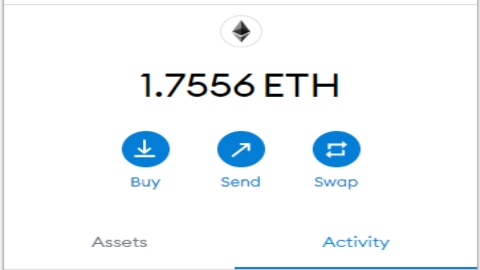The outbreak of the war between Russia and Ukraine monopolized practically all the news space this week, including that of the cryptocurrency sector. The Russian invasion together with the consequent reactions of nations from all continents, mainly from the powers of Europe and the United States, still keeps citizens from all over the world in suspense.
In the midst of this escalation of the confrontation between Russia and Ukraine, the price of bitcoin -which had been recovering from the fall experienced last January- suffered a fall, losing the support above the USD 40,000 that it had achieved at the beginning of this month. The weekly average registers a drop of 2%. At the time of this writing, the cryptocurrency is trading at USD 38,259, as reflected in the market price of Latin America and Spain, according to the CriptoNoticias price calculator.
These are the most important news:
- The beginning of a Russian attack against Ukraine, in the early hours of February 24, caused a 9% decline in the price of bitcoin. Although the value recovered a few hours later, the pioneering cryptocurrency maintained a strong coupling with traditional stocks in the face of the outbreak of the war, loosening a bit from the narrative that proclaims it as «digital gold». In this warlike scenario, the fear and greed index (which serves as an indicator for the sentiment of the bitcoin market), reflects that users move in “extreme fear”.
- In an unusual turn of events, the government of Ukraine decided to accept BTC, ether (ETH) and the stablecoin or stablecoin Tether (USDT, in its version of the Tron network), in order for the world to support the country in the war against Russia. This occurred after the Ukrainian Central Bank issued a resolution to suspend the foreign exchange market and operations with electronic money, restricting cash withdrawals. Countries around the world condemned the invasion and economic sanctions were announced in response to Russia’s actions. The United States, Canada, the United Kingdom, and countries of the European Union agreed expel “selected” Russian banks from the Society for Worldwide Interbank Financial Telecommunications (SWIFT), which will prevent them from making financial transactions with the rest of the world.
- Russian-born Ethereum co-founder Vitalik Buterin also criticized Vladimir Putin for his “special military operation” and called the intervention “a crime.” The actions of the bitcoiner community in support of Ukraine were immediate, and donations in cryptocurrencies grew exponentially in a few days. About 113 BTC (about $4.3 million) were delivered in record time to the NGO Come Back Alive. This, while a cryptocurrency exchange decided to donate money to Ukrainians registered on its platform and a Russian rock group created a DAO.
- In the midst of the conflict, several cyberattacks on Ukrainian government institutions, as well as the media and websites, were also reported. Russia was also not free from attacks. For their part, the manufacturers of chips for ASIC equipment and graphics cards (GPU) affirm that the escalation will not worsen the shortage of these devices, essential for mining Bitcoin and Ethereum. For its part, Flexpool, an Ethereum mining pool, has canceled its service to customers who have a Russian IP address in protest of the invasion perpetrated by the government.
- In Europe, representatives of regulatory institutions in Sweden managed to get the ban on Bitcoin mining included in the discussions on the regulation of cryptocurrencies in the European Parliament. The proposal was added to the package of laws known as MiCA (Markets in Crypto Assets) that will regulate crypto assets in the European Union. However, the rejection in social networks of the proposal led Parliament to suspend the vote on the project, which would take place on February 28. According to the German deputy, Stefan Berger, main proponent of the project, he himself requested the cancellation of the act.
- According to statistics from pools.invis.cloud, two-thirds of Ethereum 2.0 consensus layer validators use the Prysm client to implement the protocol on their nodes. A fact that can be cataloged as an “emergency” when indicating a high state of centralization of the network. On this, the Coinbase exchange, which has a pool of stake of ETH, pointed out that the existence of many independent validators decreases such risks. Meanwhile, Zero Knowledge Sync or zkSync, a scalability solution of the type roll-upconfirmed that it is now available on the testnet with a view to enabling cheaper transactions on Ethereum.
If you want to know the meaning of several words of the terminology of the crypto world, you can consult them in the extensive Glossary of CriptoNoticias.
SFYL (Sorry For Your Loss): in Spanish, “I’m sorry for your loss.” It is humorously told to someone who has just made a bad investment.
